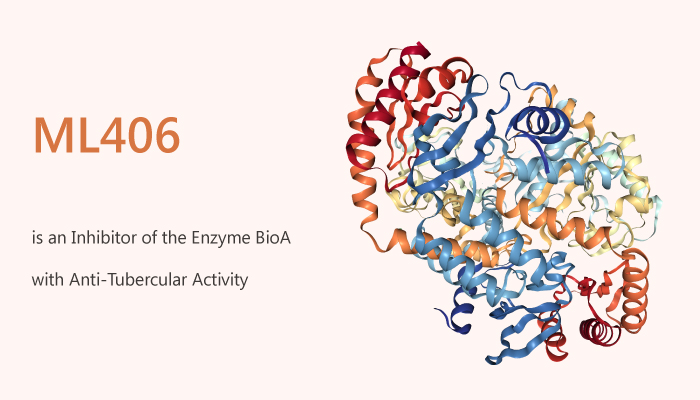Mycobacterium tuberculosis (Mtb), the primary etiological agent of tuberculosis (TB), has plagued mankind for millennia and remains the leading cause of bacterial infectious disease mortality. Mtb H37Rv is the model virulent laboratory strain. The genome sequence of Mtb H37Rv reveals it has the full metabolic potential to synthesize all vitamins and cofactors. Biotin (vitamin H) is the cofactor responsible for the activation of carbon dioxide in acyl-CoA carboxylases involved in fatty acid metabolism and pyruvate carboxylase in gluconeogenesis.
In this study, researchers demonstrated using a phenotypically well-regulated bioA knockdown Mtbmutant can defeat a chronic infection in a murine model of TB. In particular, BioA is an enzyme involved in biotin biosynthesis in Mtb. ML406 is a small molecule inhibitor of BioA. These genetic studies suggest biotin biosynthesis, especially BioA, represents an extremely attractive target for the development of new antitubercular agents. Researchers report the discovery of a structurally novel small molecule that inhibits bioA and demonstrate antitubercular activity in wild type and Mtb strains that conditionally express bioA.

Researchers also synthesize and subsequently analyze the probe ML406 by UPLC, H, and high-resolution mass spectrometry. Moreover, the solubility of ML406 is 88.0 μM in PBS with 1% DMSO. The probe ML406 is stable in human and murine plasma. Researchers also determine the stability of the probe by measuring stability in human plasma (99% remaining) and murine plasma (89% remaining). ML406 shows that 99% bound in human plasma and 82.6% bound in mouse plasma. At this point, ML406 shows a superior activity profile across all assays over CHM1.
All in all, ML406 is a small molecule probe that shows anti-tubercular activity via MtbbioA (DAPA synthase) enzyme inhibition.